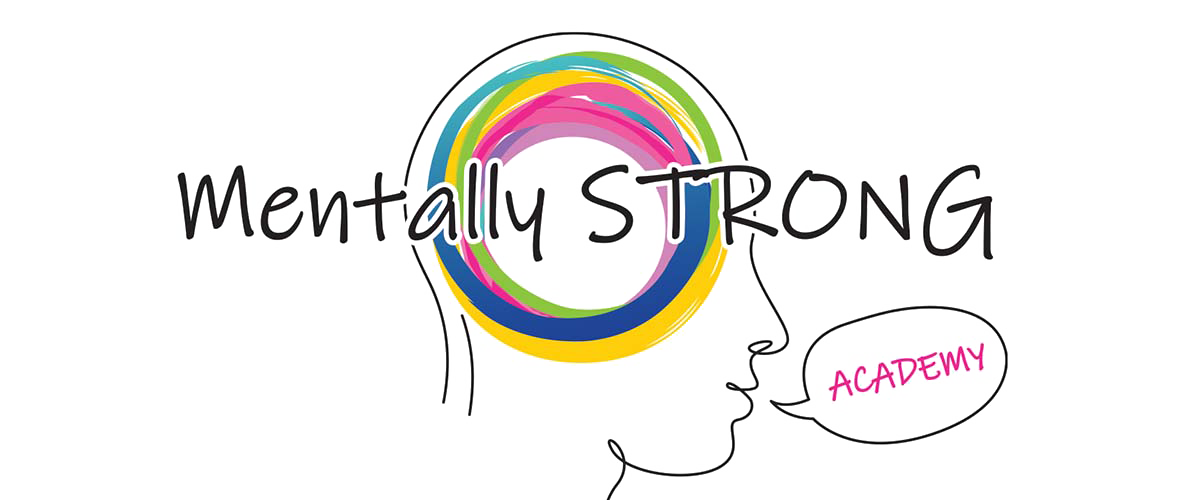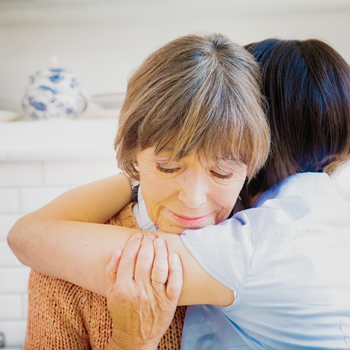What is Anticipatory Grief? Preparing for the Loss of a Loved One

As this series on grief continues, remember that grief comes in many different forms, and everyone experiences and handles grief differently. If someone is struggling with anticipatory grief that comes with preparing for the loss of someone, Mentally STRONG can provide them with healthy coping skills to help them through the pain. This article will discuss this type of grief, how to deal with it, and how Mentally STRONG can help.
What is anticipatory grief? It is when someone begins to experience grief before someone dies. It is much different from the conventional grief that you feel after the death of a loved one. Although there are many reasons someone may experience anticipatory grief, the most common reasons are a loved one is diagnosed with a degenerative disease, terminal illness or has to be put into hospice care. Sadness, anger, depression, and loneliness are symptoms of both anticipatory and conventional grief. One aspect that can be very detrimental to someone’s mental health is denial or holding on to an unrealistic hope that the loss may not happen. This is why it is so important to learn healthy ways to cope with anticipatory grief.
How to Cope with Anticipatory Grief
Dr. B, the founder of Mentally STRONG, has been living in anticipatory grief since 2008 when her son Reggie, her daughter Miah, and her husband were diagnosed with DRPLA (Dentatorubral-Pallidoluysian Atrophy). DRPLA causes atrophy in the brain. Atrophy is cell death and it’s a very slow progression. Reggie was considered a quick progression. He was diagnosed at age 9, and he passed away at 17. He began having symptoms when he was 4 or 5 years old, which would be considered a rapid progression of DRPLA. Her husband, now 52, did not begin showing signs until he was about 45. Her daughter Miah is now 21, but due to the cell atrophy in her brain, she is cognitively more like a 10-year-old. She is beginning to have difficulty walking, which is a continual reminder that her brain is slowly dying. Below is a video to help understand more about how Dr. B deals with the anticipatory grief that she has been living with for so long.
- Allow feelings of grief to help prepare for what’s to come. Examine unresolved issues, make peace, if necessary, settle any legal or financial matters and discuss end-of-life wishes.
- Research what to expect. Learn as much as possible about the loved ones’ condition, symptoms, possible treatment side effects, and the prognosis timeline.
- Create moments to enjoy with a loved one. The loved one may not be able to do the same things they once could, but try to find enjoyable activities to do together. These may become cherished memories.
- Connect with others who can provide insight and support. Seek out a support group or people who have experienced anticipatory grief. It is important to have someone to talk with about the situation.
- Enlist help and continue to live life. There is no shame in seeking out counseling or professional help, focusing on self-care, and enjoying life when you can.
Mentally Strong Can Help You Learn Cope with Anticipatory Grief
Remember that just like grieving the loss of a living loved one, anticipatory grief brings with it feelings of sadness, anger, depression, and denial. It’s important to understand that these feelings are normal. Dr. B developed Mentally STRONG to help people learn how to cope with anticipatory grief. Contact Mentally STRONG today to learn how to start the journey of living a happy, healthy, Mentally STRONG life!
Experiencing anticipatory grief? Contact Mentally STRONG to learn how The Mentally STRONG Method can help cope with anticipatory grief.


